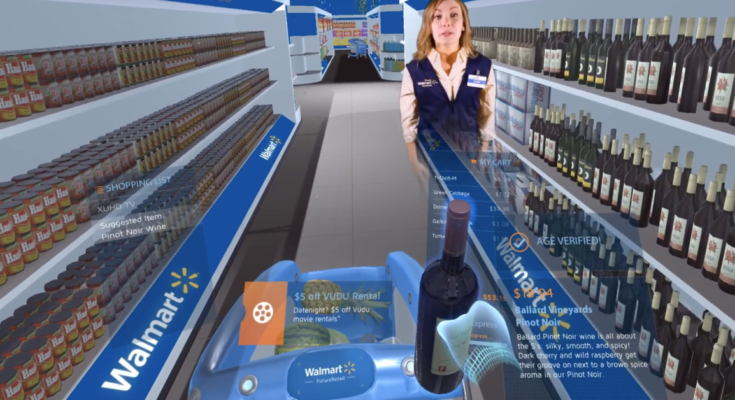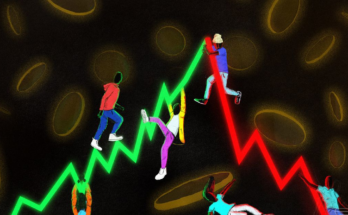There’s a video doing the rounds on Twitter today that supposedly shows “how Walmart envisions Shopping in the #Metaverse.” In it, a virtual avatar browses shelves of virtual groceries, picking and tossing items into a shopping cart with all the grace of stop motion skeleton in a ’50s adventure film. Responses to the clip have been suitably mocking, criticizing the VR experience for its pointless skeuomorphism and outdated visuals.
This is appropriate, given that the video is actually four years old.
A quick Google reveals that the clip was made for Walmart by a digital agency in 2017 to “impress influencers at SXSW” (an example of an obscure capitalist ritual known as a “brand activation”). The video, then, has nothing to do with the current wave of metaverse hype sluicing through Silicon Valley, which makes its criticism of it an example of the sort of knee-jerk, anti-tech cynicism that’s stopping us all from getting rich on crypto, right? Well, no, not really.
Because although the clip itself is not an example of contemporary metaverse visionscaping, the fact that it’s indistinguishable from this material is damning.
It’s an illustration of the fact that the metaverse itself is not news. It is, in fact, a stagnant concept: a re-hashing of decades-old ideas of how we might live, work, and socialize in virtual environments. Like that recent New York Times article that touted “Getting Married in the Metaverse” as some novel experience, it shows how a lot of marketing and money have been deployed to sell the public on an experience that’s at least as old as Second Life, the Linden Lab VR project that launched in 2003. The reason people are willing to believe that a four-year-old video shows the best the metaverse can offer is that the metaverse hasn’t offered anything better yet.
Might things be different this time? Might new virtual worlds succeed, letting us all don VR headsets for office meetings populated by clown, robot, and cowboy avatars? Sure, maybe. The hardware has certainly improved since the ’90s, and there’s a lot more funding for this round of virtual dreaming. But, as reactions to the Walmart shopping clip show, no one seems to be impressed or energized by this would-be revolutionary vision.
Life in virtual reality just doesn’t feel like the future anymore. It feels like a past we already gave up on.



